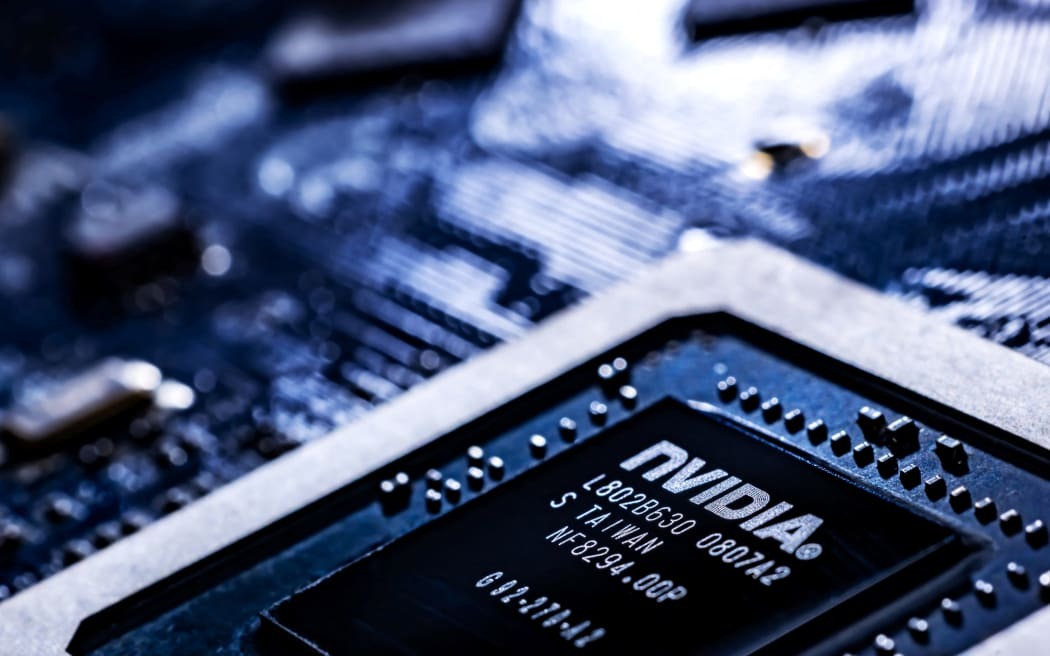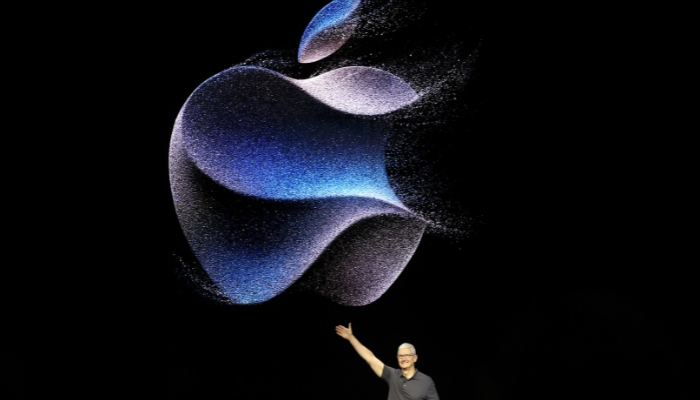
Last updated on April 4th, 2024 at 10:21 am
Company exceeds Wall Street predictions, boasting 265% sales surge after AI breakthrough
Nvidia reached a $2 trillion stock market valuation on Friday, riding the wave of the artificial intelligence boom.
An impressive surge in the company’s shares had already propelled it beyond Amazon and Alphabet, the parent company of Google and YouTube, making it the third largest in America.
Another exceptional earnings report, where Nvidia exceeded Wall Street’s expectations with a 265% increase in sales, ignited a fresh rally this week.
It took over twenty years for the Santa Clara, California-based company to reach a $1 trillion valuation. Less than nine months later, Nvidia hit $2 trillion.
Shares in the company started climbing on Friday when trading opened in New York, briefly reaching the milestone. However, they later declined, finishing the day with a 0.4% increase and a valuation of approximately $1.97 trillion.
During early trading, the benchmark S&P 500 also surpassed 5,100 for the first time before retracting. Despite this, both the S&P 500 and the Dow Jones industrial average ended the week at new record highs, reflecting Wall Street’s ongoing ascent to new peaks.
Nvidia is central to the AI boom, with many technology developers relying heavily on its products. Companies like Microsoft, OpenAI, Amazon, Meta, and Google have all secured deals to buy Nvidia’s chips in large quantities as they rush to introduce new AI products and features.
The surge in demand has significantly boosted Nvidia’s business, particularly its revenue from data centers, which has increased by over 400% in the last quarter, reaching $18.4 billion. Founder and CEO Jensen Huang described this as a “tipping point” for faster computing generative AI, as the company released its latest earnings report on Wednesday.
Nvidia’s financial success and the widespread interest in its shares are viewed as indicators of the overall interest in AI. Since the beginning of the year, the company’s stock has risen by more than 60%.
Nvidia’s plans to release the new B100 chip, positioned at the highest end of its product line later this year, have fueled expectations for its growth trajectory. Some key figures, such as OpenAI’s Sam Altman, are in discussions about launching rival AI chip ventures.
According to Dan Ives, a technology analyst at Wedbush, Huang and Nvidia have fundamentally changed the game and initiated a significant technological transformation that investors are still trying to fully grasp. “The AI Revolution starts with Nvidia, and in our opinion, the AI party is just beginning,” he added.
Ives noted that the industry has not seen a transformation of this magnitude in decades, likening the impact of AI and Nvidia’s role in it to the transformative effect of the internet in the mid-90s.





